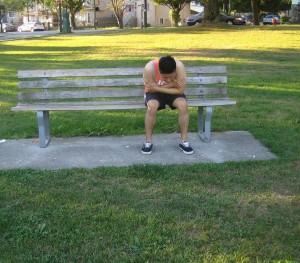Stroke is considered as a life-threatening, serious medical condition that develops once the blood supply to a region of the brain is cut off or disrupted. Always bear in mind that strokes are medical emergencies and immediate treatment is vital since the sooner the individual is given treatment, the less damage is likely to occur. Once an individual is suspected of having a stroke, call for emergency assistance or bring to the nearest emergency department.
What are the signs and symptoms?
The major indications of stroke are easily recognizable with the FAST acronym (face-arms-speech-time).
- Face – the face might have drooped on one side and the individual could not smile or the eye or mouth have dropped
- Arms – the individual might not be able to lift both arms and keep them lifted due to numbness in one arm or weakness
- Speech – the speech might be garbled or slurred or the individual could not speak at all despite being awake
- Time – it is vital to call for emergency assistance if any of these signs are present

The individual might not be able to lift both arms and keep them lifted due to numbness in one arm or weakness
Why do strokes occur?
Just like with other organs, the brain requires oxygen and nutrients provided by the blood to properly function. Once the supply of blood is limited or ceases, the brain cells start to die. This can lead to brain damage, disability and even death. Take note that there are 2 main causes why strokes occur:
- Ischemic – the blood supply is stopped due to a blood clot
- Hemorrhagic – there is a weakened blood vessel which supplies the brain bursts
A transient ischemic attack might be connected in which the supply of blood to the brain is momentarily disrupted, which leads to a “mini-stroke” that often lasts between 30 minutes and several hours. This must be treated immediately since this is often a warning sign that the individual is at risk for ending up with a full stroke in the future.
Who are at risk?
The brain injuries triggered by strokes are the main cause of disability among adults. The elderly face the highest risk for strokes but can occur at any age including children.
Those who have African, South Asian or Caribbean descent face a higher risk for stroke. This is due to the predisposition to end up with high blood pressure that can result to strokes. Other factors include lack of exercise, smoking, overweight and poor diet as well as diabetes, high cholesterol levels and atrial fibrillation.
Stroke management
The treatment usually depends on the type of stroke experienced including the part of the brain involved and the cause. Most often, strokes are managed with medications such as those that prevent and eliminate blood clots, reduce the blood pressure level and the cholesterol levels.
In some circumstances, surgery might be recommended in order to effectively deal with the brain swelling as well as reduce the risk for further bleeding especially with hemorrhagic strokes.

